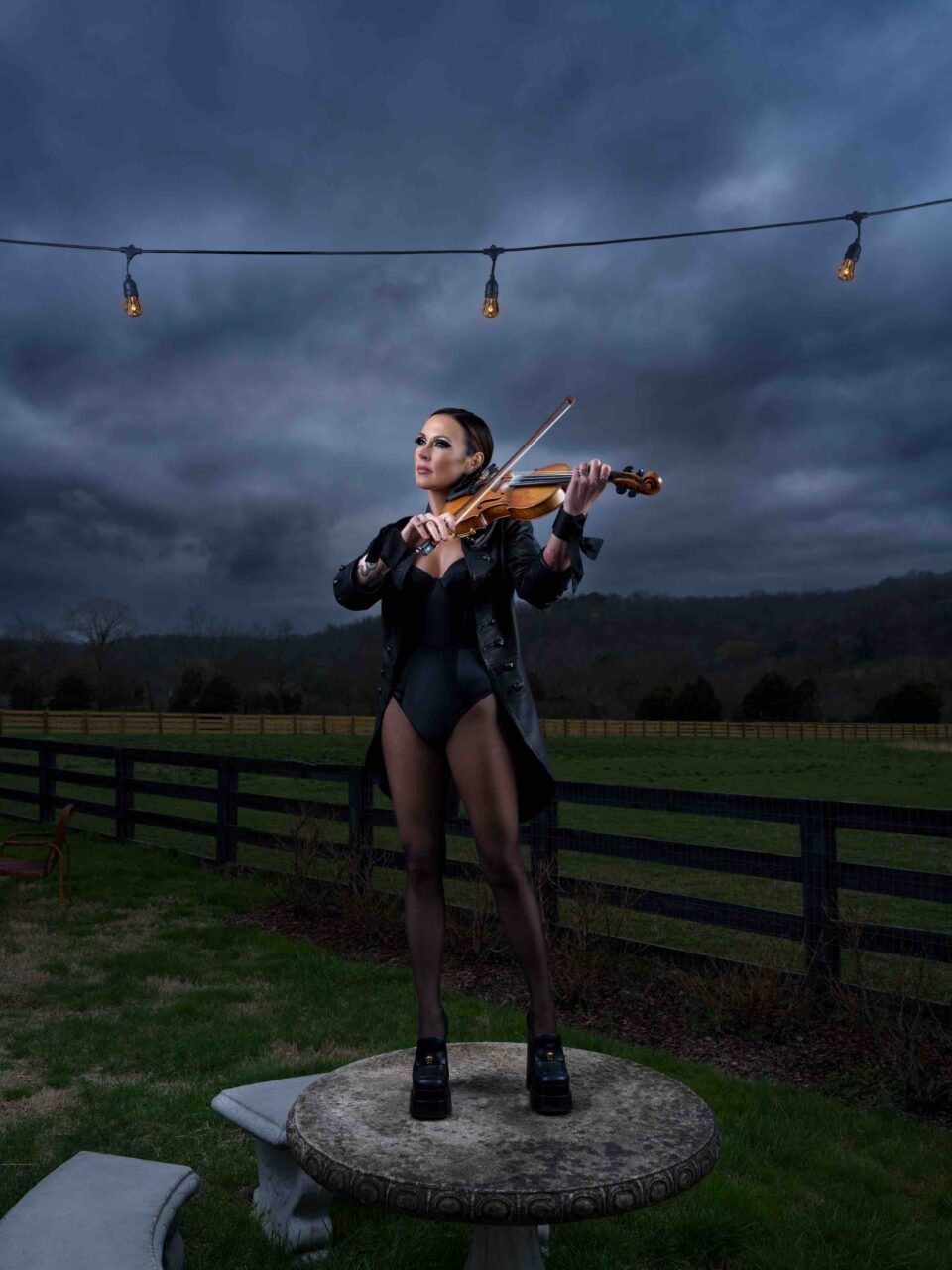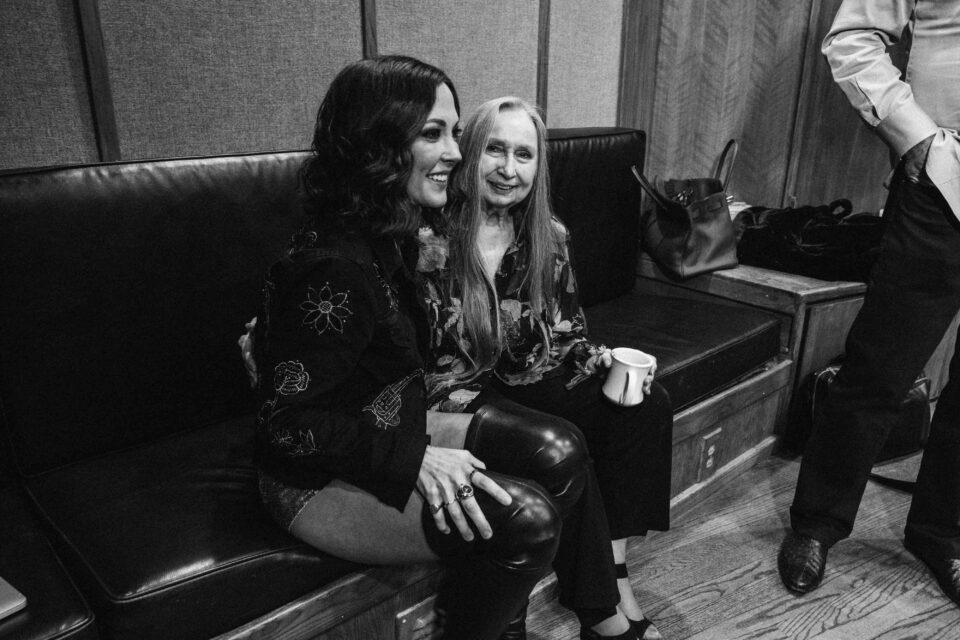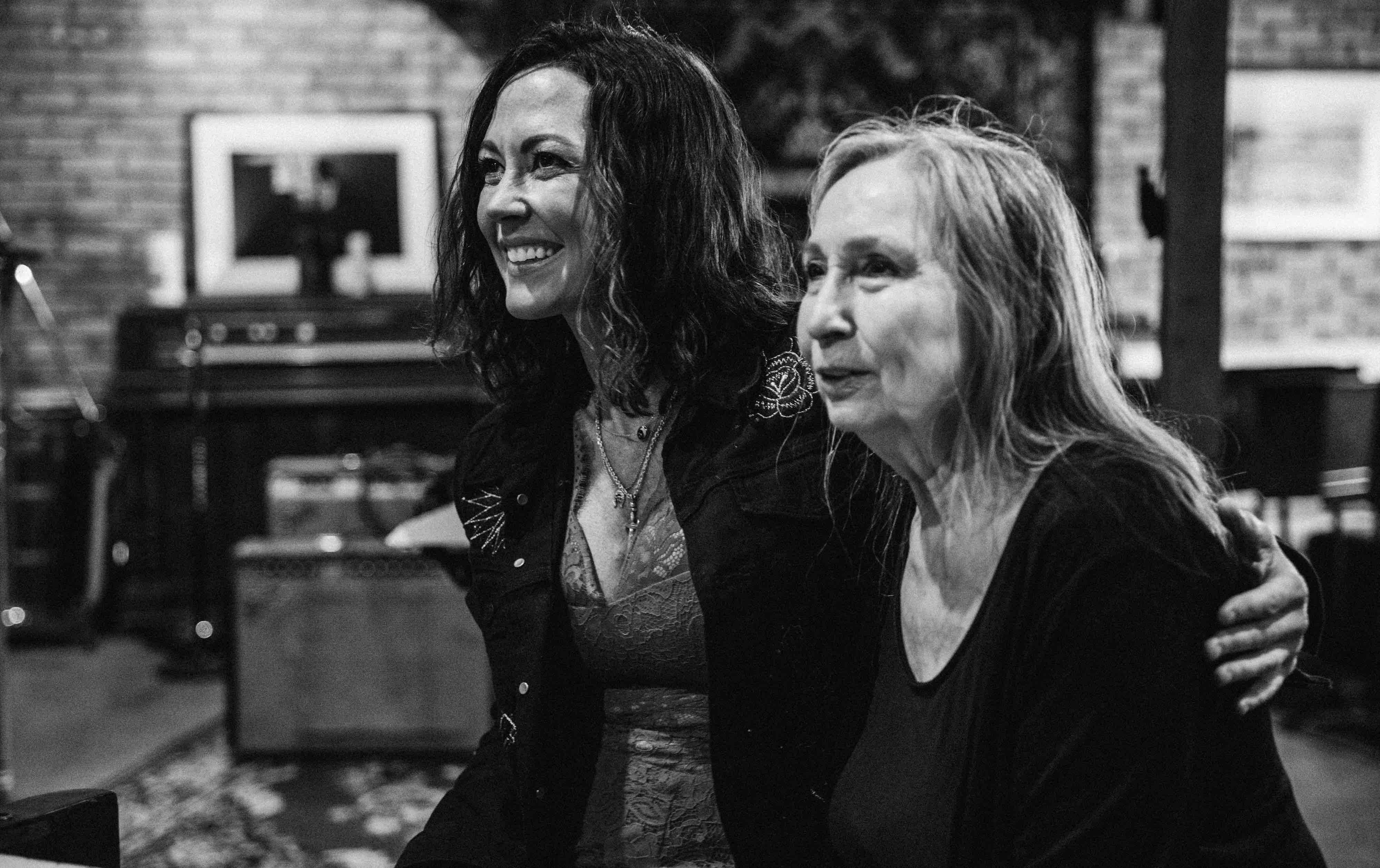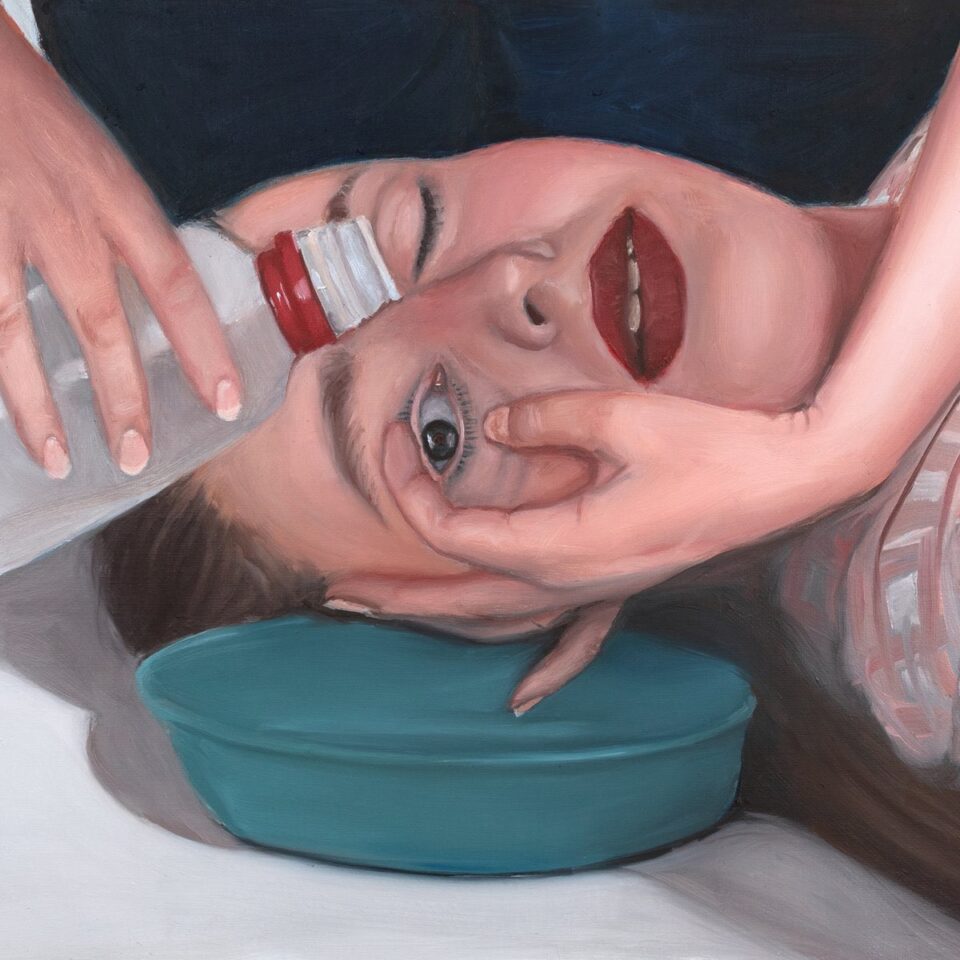With a highplains voice like an ardent angel from Montgomery, a lyrical knack for devilish imagery and complicated relationships, and a mean fiddle as her main instrument, Amanda Shires has created a course study in new country—a lane strictly her own on solo albums such as 2018’s To the Sunset and 2022’s Take It Like a Man. For all of the inner lives and insular voices of her imagistic lyrics, her complex, noisy melodies, and her shushing Dolly/Emmylou-like vocals, Shires is a born collaborator, working as part of songwriter-turned-husband Jason Isbell’s albums since 2011, her collective The Highwomen with Brandi Carlile, Natalie Hemby, and Maren Morris, and, most poignantly, with Bobbie Nelson—pianist, singer, and sister to Willie—on their just-released Loving You LP.
Nelson had her own singular take on country and gospel music (to say nothing of her labyrinthine life issues) as Willie’s longtime pianist, with but one solo album to her name in 2007’s Audiobiography, and a memoir penned with her brother and author David Ritz, 2020’s Me and Sister Bobbie: True Tales of the Family Band. For Bobbie to have collaborated on something as intimate as Loving You before her death in March of last year shows an immense sense of trust in, and sisterhood with, Shires.
We recently spoke with Shires following the release of Loving You, discussing everything from getting her start with the Western swing group the Texas Playboys to connecting with another iconic figure of Texas music who helped her rekindle her spark for playing music again post-pandemic.
Now that Loving You is out, how do you feel the close collaboration with Bobbie changed you in a meaningful way?
When I was putting Take It Like a Man together, I was thinking of including [Willie Nelson’s] “Always on My Mind” on that record. So I called her to be on it, she said yes, and we hung out. She thought that we should form a band. During that same time, I was just getting my wings, so to speak, in being in the studio. Finding my joy again in playing music. That really rekindled my spark in wanting to do music again—and all that was heavily reinforced through working with her. She had the joy of making music, while claiming her space and the ownership of her music and maintaining boundaries. She also was such a woman of faith that it recentered me in that way. She taught me a lot about forgiveness, because that’s how she led her life. That’s what made her music.
So it’s fair to say that she came into your emotional and musical space at a perfect time.
Definitely. I think that folks come into your life when you need them most. I think that we actually both needed each other at that time.
“I think that folks come into your life when you need them most. I think that [Bobbie and I] actually both needed each other at that time.”
When you decided that Loving You would become a thing between you, what were the first songs that you two recorded to get the process moving along?
After “Always on My Mind” she had one song she insisted she wanted to do, “Summertime.” She loved that song, grew up with it. Bobbie had a real love and knowledge of music. I also think that “Summertime” represented an idyllic life, something that she never had. That song can be dark. It also has this thing, like…it would be nice if your mom and dad were always there for you. We don’t all get that. At the same time, she had her own kids taken away, and had to deal with not always being there for her children—not by her choice, of course.
Were the choices made on Loving You split equally? What was your agenda for its curation—beyond some great Texan songs.
“Angels [Flying Too Close to the Ground]” was her favorite Willie Nelson song. Straight up. The Texas songs were some of the first non-church, secular songs that she ever played—the Bob Willis tunes. And those were the first songs that I ever learned. We would sit around the piano, ask if each other knew this song or that, and just play. “La Paloma” was one that she taught me. A song such as that explains a time in her life when she was not only working in restaurants playing those tunes, but also her love interest at that time would bring her traditional Mexican music to play. That stuck with her.

You mention Bob Willis, which reminds me to ask you about your first gig playing as a kid in his band, his Texas Playboys.
Yeah, that was great. At the time, I didn’t know that he had a place in history. All I knew was that I loved that music and learning how to improvise, and loving the people who were teaching me that music. I was in it. I would take any part they wanted me to do—boring parts, anything. Being in a group meant being good in a group dynamic. Show up on time, make sure your stuff works, be responsible. Because the Texas Playboys were so good to me, I compare every other band situation to that one.
“It’s fun to have that extra skill set—a lot of folks write great songs but can’t improvise for shit, let alone play their guitar.”
How would you say the freedom of improvisation ultimately inspired your songwriting?
As a kid learning to play, I didn’t know how to talk about my feelings at age 14. But I learned to play what you feel while staying within the chords. I learned there to verbalize my emotions. When it comes to songwriting, improvisation helped inform where I was going. You’re already pulling electricity out of thin air—thinking, singing to yourself, or caterwauling loudly in a hotel room ’til your neighbors ask you to quiet down. I think it happened naturally that my musical talents informed my songwriting, and vice versa. I also like to challenge myself and see if I could write a song with one chord while also playing a fire solo over it. It’s fun to have that extra skill set—a lot of folks write great songs but can’t improvise for shit, let alone play their guitar.
Was your transition from sideperson to frontperson difficult?
Absolutely not. That was an easy jump, even though it took a second. I had the ability and the income, and along with the Texas Playboys, I was playing with Billy Joe Shaver and whoever would have me, never slacking. When I moved to frontperson stuff, I had at least 30 minutes of material to my name. And it was impossible at first to get booked in Texas. I was the fiddle player to so many booking agents. The first show I ever got to play as a singer-songwriter was because of Todd Snider. He let me open for him.
When that started happening, Shaver mentioned that maybe I should move to Nashville. As Texans, it’s hard to want to move, but I knew that if I wanted to become a frontperson, I couldn’t be a side person. I like playing other music with other people, so I made a deal with myself: Going forward I would only play with people I could learn from by the way of songwriting and learning the business. So I held myself to that while waiting tables to save up money to make my first record. It’s not easy waiting tables after you’ve not worked for your whole life—especially if you were a shitty waitress like me.
You’re nearly 15 years out from West Cross Timbers. What do you recall about that first album?
I was very proud of myself, even though I didn’t really know what I was doing. Not a clue. I did the thing that I set out to do—now what? I tried to get a booking agent, found out that I had to book myself, and wound-up doing house concerts because they paid more than bar gigs. I slept on many couches and was happy when I was presented a futon on occasion, even if it was a dog bed. When I did my second record, I kept thinking of ways in which I would get more out of it, how to make it go further. So with Carrying Lightning, I started cold-calling names of women that I read on the internet. The first person who would take my call was Marilyn Laverty at Shore Fire. You’re not supposed to send unsolicited mail, which I did. She told me that I didn’t know how all this works, but I said she could tell me how all this works.
“Every ‘no’ puts you closer to ‘yes.’ You just have to keep believing in yourself. Be good to the universe, and something good will happen.”
I called a lot of people, and I can tell you that rejection is real. This was before Instagram, TikTok, and people releasing their own music [widely]. You were supposed to have a label then, but here I was, putting out my own album without knowing what I was doing, and made my own fan campaign. After a half hour, I told her that we’d become friends and that nothing I could send her would be unsolicited. So I sent her music, told her my goal was to only do music and not wait tables, and I’ve been doing that ever since. Every “no” puts you closer to “yes.” You just have to keep believing in yourself. Be good to the universe, and something good will happen. I don’t always feel like that, but I try. FL








